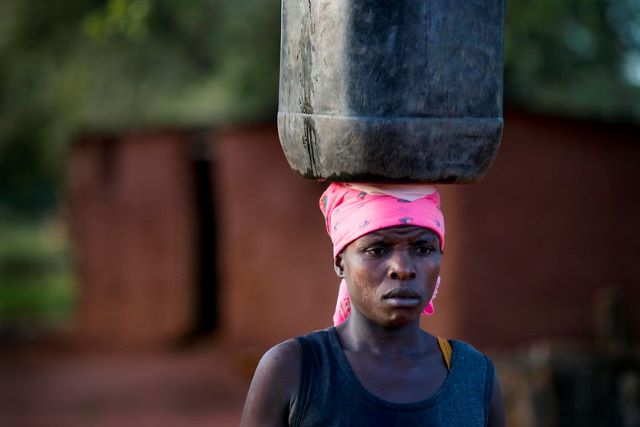Cholera Outbreak in Mozambique
 On Feb. 24, the World Health Organization (WHO) released a report documenting the current cholera outbreak in Mozambique. Since the first cholera case in this particular outbreak on Sept. 14, 2022, concerns have grown as the WHO fears the outbreak will worsen due to recent heavy rainfalls, which increase the risk of cholera. The number of cases started to pick up in December 2022. All provinces affected by the cholera outbreak in Mozambique are areas susceptible to flooding. As of Feb. 19, Mozambique records 5,237 possible cases of cholera and 37 deaths in six of 11 provinces.
On Feb. 24, the World Health Organization (WHO) released a report documenting the current cholera outbreak in Mozambique. Since the first cholera case in this particular outbreak on Sept. 14, 2022, concerns have grown as the WHO fears the outbreak will worsen due to recent heavy rainfalls, which increase the risk of cholera. The number of cases started to pick up in December 2022. All provinces affected by the cholera outbreak in Mozambique are areas susceptible to flooding. As of Feb. 19, Mozambique records 5,237 possible cases of cholera and 37 deaths in six of 11 provinces.
Concerns Over the Situation
Mozambique is currently in its rainy season and the WHO’s report expresses concern over the possibility of heavy rainfalls only worsening the situation. The peak of the rainy season typically occurs in February, but the rainy season still continues through April.
Mozambique reports cholera cases during the rainy season (October through April) every year, but the WHO reports that the current cholera outbreak in Mozambique has impacted more geographical locations than in recent years. In the past few years, cholera impacted up to three provinces yearly; however, this season, the geographical locations impacted have doubled. The Niassa province is reporting its first cases in more than five years.
Heavy rainfalls and flooding increase the risk of cholera because flooding can lead to inadequate access to clean water and sewage treatments, causing bacteria to spread.
Another concern is that one of Mozambique’s neighboring countries, Malawi, is grappling with the most fatal outbreak ever experienced. Even with the outbreak in Malawi, there continues to be a lot of movement across the borders of the two countries.
Cholera and How it Spreads
Cholera is an infectious disease caused by ingesting food or water infected by the bacteria Vibrio cholerae. After exposure to contaminated food or water, cholera incubates between 12 hours and five days. The most common symptoms include diarrhea, dehydration and vomiting.
According to the WHO, the bacteria remains in a person’s feces for one to 10 days. The stool produced by sick individuals can affect others if not disposed of properly. Others can ingest the bacteria if the patient or caretaker does not thoroughly wash their hands. Both children and adults can get cholera. Though it is a preventable disease, it can be fatal if untreated.
Response to the Outbreak
The government and the WHO are working together to address the cholera outbreak in Mozambique efficiently. When the outbreak first began, a national cholera task force formed. The WHO and national cholera task force are combining forces to create preventive and remedial responses, such as handing out brochures in local languages to residences and placing educational posters all over towns and treatment centers in affected districts. If communities do not understand the risks associated with treating patients and ingesting unsanitary food or water, the spread of the disease will only continue. Education and communication of potential contamination are necessary to control an outbreak.
The response also included distributing rapid test kits in areas most impacted. National Rapid Response Teams (RRT) are overseeing the investigation of cases in affected provinces. The teams aim to record data and track family members or friends of patients who are exposed or vulnerable to exposure.
The International Coordinating Group (ICG) on Vaccine Provision responded to a request for 700,000 doses of Oral Cholera Vaccine (OCV) to address the cholera outbreak in Mozambique. Health workers began administering the oral vaccines on February 27, 2023.
Mozambique’s government along with support from the WHO and other global communities is working toward administering vaccines, treatment and contamination protocols while also educating locals on how the disease spreads. A critical preventative measure that the WHO mentions in its report is the establishment of lasting infrastructure for safe drinking water. It is not likely that rainy seasons will cease in Mozambique and neighboring nations, but ensuring sanitary water for citizens can prevent further outbreaks.
– Maya Steele
Photo: Flickr
